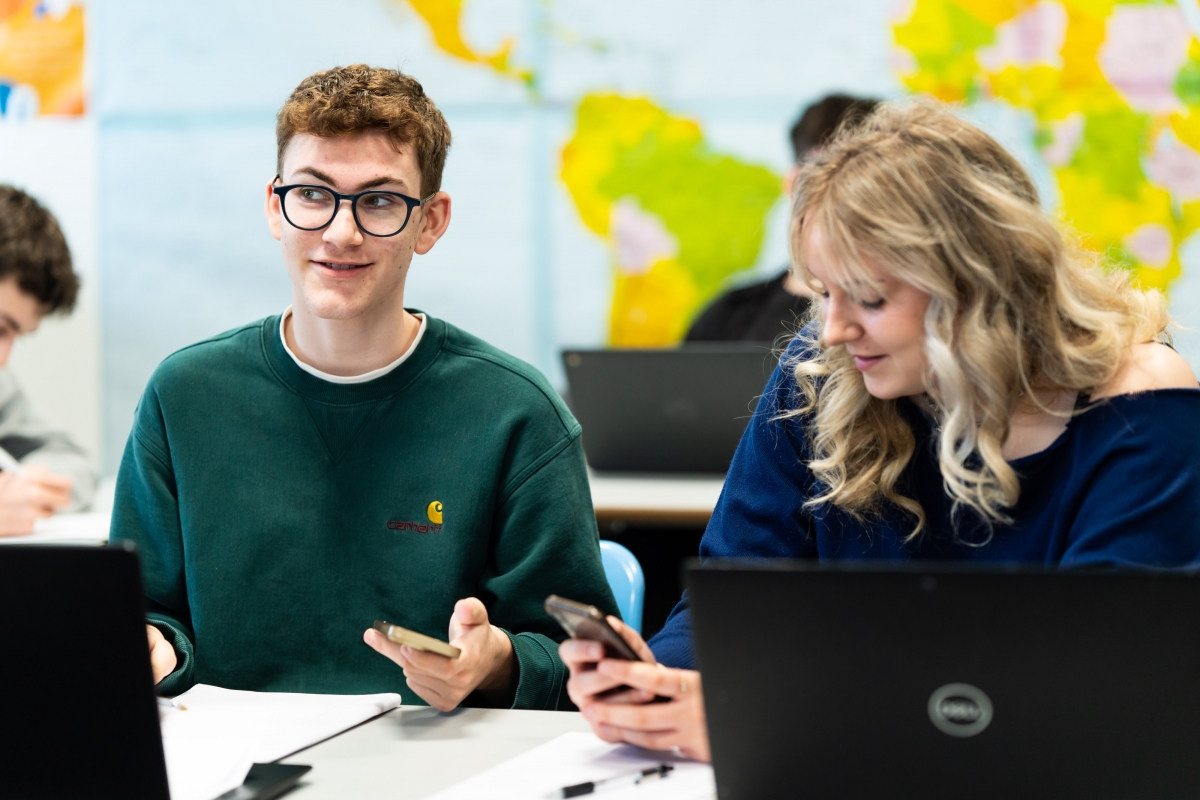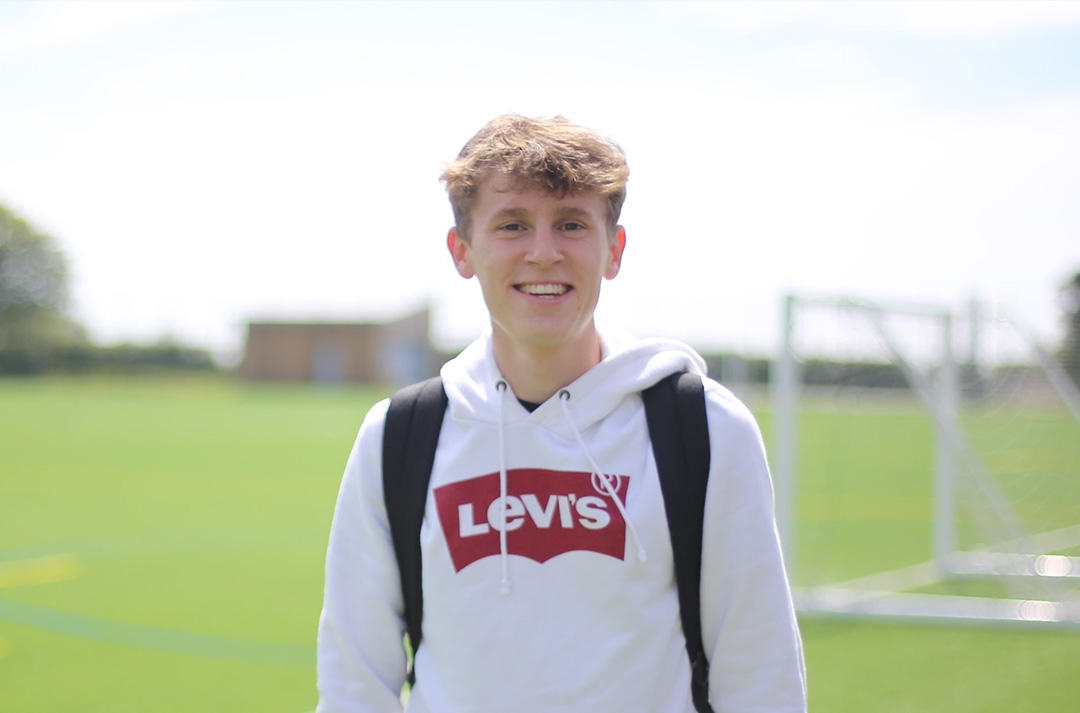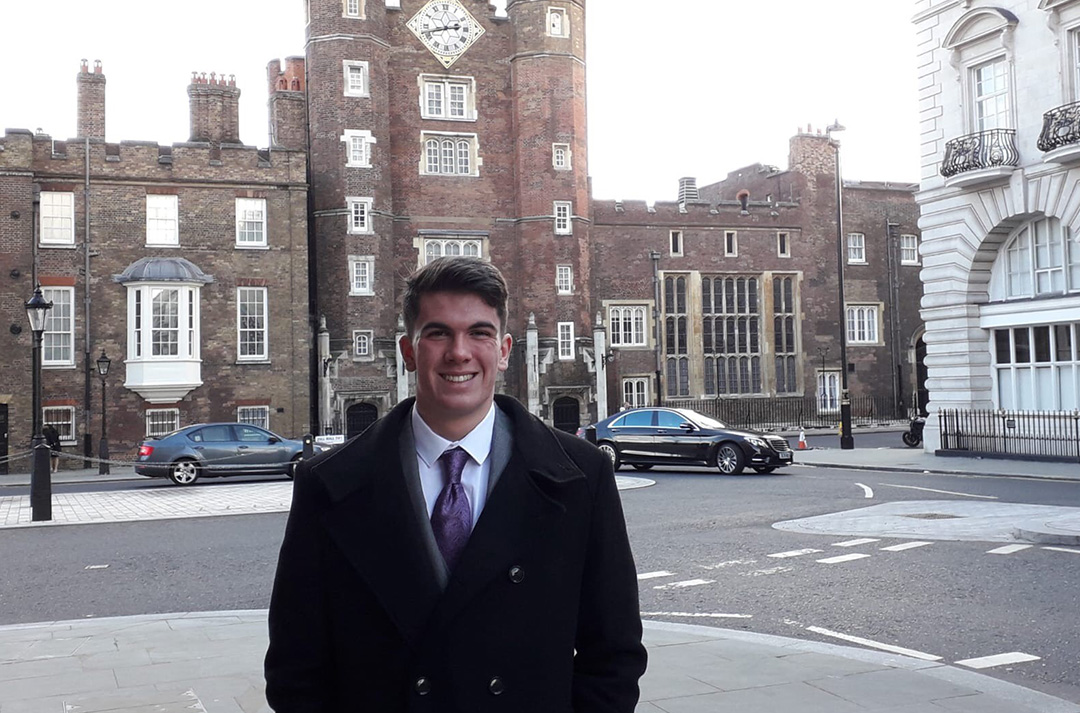A Level French
Acquiring the ability to speak another language is only one advantage of taking French to A level. You will also hone your literacy and communication skills in English, become a global citizen by expanding your knowledge of the world and earn a qualification that will set you apart from other university and job applicants. The course at Callywith College will give you the opportunity to build on the knowledge of French that you have acquired at GCSE. You will improve your language skills; learn vocabulary based on a variety of topic areas, as well as grammar rules that will enable you to make sense of the language and to use the language accurately. All of this is done through the exciting social and cultural topics, as well as employment-related activities, and you will leave with plenty of transferable skills that will make you highly employable.
Key information
English & Languages / Full Time / A Levels and Equivalent

Why choose this course?
French is estimated to have about 76 million native speakers and about 235 million daily, fluent speakers and is spoken officially in 29 countries of the world, the sixth most widely spoken language. Due to the rapid development of populations in French-speaking Africa, it is expected to expand rapidly in the next 50 years. French is also the procedural language for the EU, the only language used for deliberations at the Court of Justice for the EU, and one of the recognized working languages of the United Nations. The high number of Mandarin, English and Spanish speakers is the most common justification for studying these languages. With the forecast growth of the language over the next 30 years, the same can be said for French. However, the most compelling reason for studying French is not simply to ability to converse freely in this in-demand language. No – this course complements many other A level subjects, incorporating literacy, statistics, research skills, presentation skills, sociological and geographical information and – most importantly – it is interactive, communicative and fun!
What will I learn?
You will develop all four language skills: speaking, reading, listening and writing through a wide range of materials, both inside and outside the classroom. You will have access to a range of brand new specialist resources in our Learning Resource Centre, where you can get help with research, homework or any other aspect of your studies. Once a week, you will have a conversation session with your French lecturer to help you improve your confidence in speaking, consolidate class work and prepare for the speaking exam.
The second aspect of your course will be to develop your knowledge of France and other French-speaking countries and their culture. You will do this by studying various topics as part of your course, as well as a French language film (in Year 1) and book (in Year 2).
These are the topics that you will be studying as part of your course:
Year 1
- Families and citizenship
- Youth trends and personal identity
- Education and employment opportunities
- Regional culture and heritage in France, French-speaking countries and communities
- Media, art, film and music in the French-speaking world
- A French language film
Year 2
- Migration and integration
- Cultural identity and marginalisation
- Cultural enrichment and celebrating difference
- Discrimination and diversity
- France 1940-1950
- Life in Occupied France
- The cultural dimension in Occupied France – political context of theatre and cinema productions
- Rebuilding and restructuring post-war France
- A French language book
Assessment Arrangements
Your achievement in this subject is dependent upon excellent attendance, punctuality and effort including at least 4 hours of independent study time per week. You will learn in a friendly and supportive atmosphere and your progress will be monitored and assessed regularly by your lecturer.
You will have regular tests on vocabulary and grammar as these form the basis for all your studies on this course. A variety of weekly homework tasks will be set and assessed in line with exam mark schemes. These will include written work, reading and listening tasks, oral presentations and preparation for discussions. You will review your own performance in termly 1:1 sessions with your lecturer.
The A level course is linear and will be assessed by three examinations at the end of your second year:
- Component 1: speaking;
- Component 2: listening, reading and translation;
- Component 3: writing.
Your lecturer will prepare you well for these exams, but also for practical use of the language in the real world.
Where will it take me?
An A level in French will prepare you for a degree in modern languages, which can be combined with almost any other subject for a joint honours degree. It is also a great way of differentiating yourself from other candidates, given that nationwide take-up is in decline. After a degree in French, you could pursue a career in any of the following sectors: education, journalism, marketing, translation and interpreting, transcreation, subtitling and dubbing, business and finance, hospitality and tourism, government and diplomatic services, charity work, law…the list is endless!
Information & Support
We encourage all students to expose themselves to the French language and culture as much as possible. We provide opportunities for this in and outside the classroom, as well as various materials in our Learning Resource Centre and on Sharepoint. For further reading, follow our Twitter feed: @CallywithFrench.
What will I need?
Five GCSEs at grade 4 or above including grade 6 in French and grade 5 or above in English Language or Literature. Successful A Level students would normally have achieved a grade 6 or B in a number of relevant GCSE subjects. An interest in French language, grammar and culture is also essential.
Additional Information
Awarding Body:
Eduqas
To obtain more information about this course, please call: 01208 224000 or email enquiry@callywith.ac.uk


